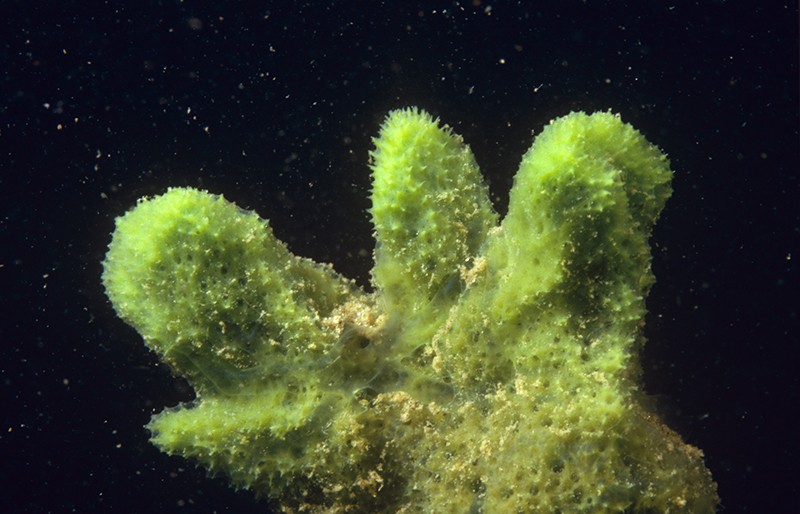Sponge cells hint at origin of the nervous system
Sponges are simple multicellular organisms, though they are skillful filter feeders, filtering tens of thousands of liters of water through their bodies each day to
get food. Their ability for this complicated behavior is more exceptional as they do not have a brain or a single neuron.According to a study published in Science, sponges use a complex cell communication system to regulate their feeding and potentially annihilate invading bacteria. This is exciting research that enables us to look at sponges in a whole new way. According to Casey Dunn, an evolutionary biologist at Yale University, Connecticut, the results could benefit us in understanding the evolution of animals’ nervous systems.

Neurons interact with one another by transferring electrical or chemical signals via small and targeted connections termed synapses. Despite the animals’ lack of neurons, earlier research discovered that sponges have genes encoding proteins that support synapses function.
Detlev Arendt, an evolutionary biologist, EMBL, Germany, and team sequenced the RNA in several separate cells from a freshwater sponge (Spongilla lacustris) to determine which cells expressed these genes.
They observed that the sponge has 18 distinguished cell types. Synaptic genes were active in some of them, which were grouped near the digestive cells of the sponges. This implies that some kind of cellular interaction may coordinate the animal’s filter-feeding behavior.
The team then studied one of these cell types, which they named secretory neuroid cells, using X-ray imaging and electron microscopy. The study uncovered that neuroids extend long arms to reach choanocytes, a type of cell with hair-like projections that power sponges’ water-flow systems and capture the majority of their food.
Nervous-system precursor
The team believes that these arms enable neuroids to interact with choanocytes, allowing them to halt the water-flow system and clean out any detritus or foreign microorganisms, based on the proximity of the two cell types and the expression of genes that may allow for chemical secretion. Though these neuroid cells are not nerves, and there is no evidence of the synapses that allow neurons to interact so fast.
Jacob Musser, an evolutionary biologist, EMBL, and co-author of the study, stated that this cell type could be an evolutionary precursor to an actual nervous system.
He further added that they are at an intermediary position, where they have gone from having all these independent pieces to bringing them together more extensively, yet all the interconnectivity required to form a fast synapse is not obtained.
Some experts believe that referring to these cells as nervous system precursors is a stretch. Linda Holland, an evolutionary developmental biologist, UC San Diego, stated that it’s intriguing but not conclusive. She commented that it would be challenging to determine whether the evolution of nervous systems happened from this cellular communication system or arose earlier or even several times, as suggested by some experts. According to Sally Leys, a marine biologist, the University of Alberta, Canada, several other organisms, like unicellular eukaryotes, have the same synaptic genes.
April Hill, a developmental geneticist, Bates College, Maine, believes that this research and its methods will serve as a “launchpad” for further studies into this ubiquitous sponge. She further stated that whether other sponges utilize a comparable cellular interaction system is an important unanswered mystery.
Also Read:
- Astronauts Harvest World’s First Batch Of Chili Peppers In Zero Gravity
- Govt Initiative – Launch of Mentorship Programme For Young Innovators
- California Condor Reproduces Asexually: Shocking Discovery
- All Eyes on India For Upcoming CoP26 Summit
- Breakthrough: Can We Use Plastics As Fertilizers?
Check out Biotecnika App for more recent Updates, News, and Job vacancies.
Keywords: Sponge cells hint at origin of the nervous system
































